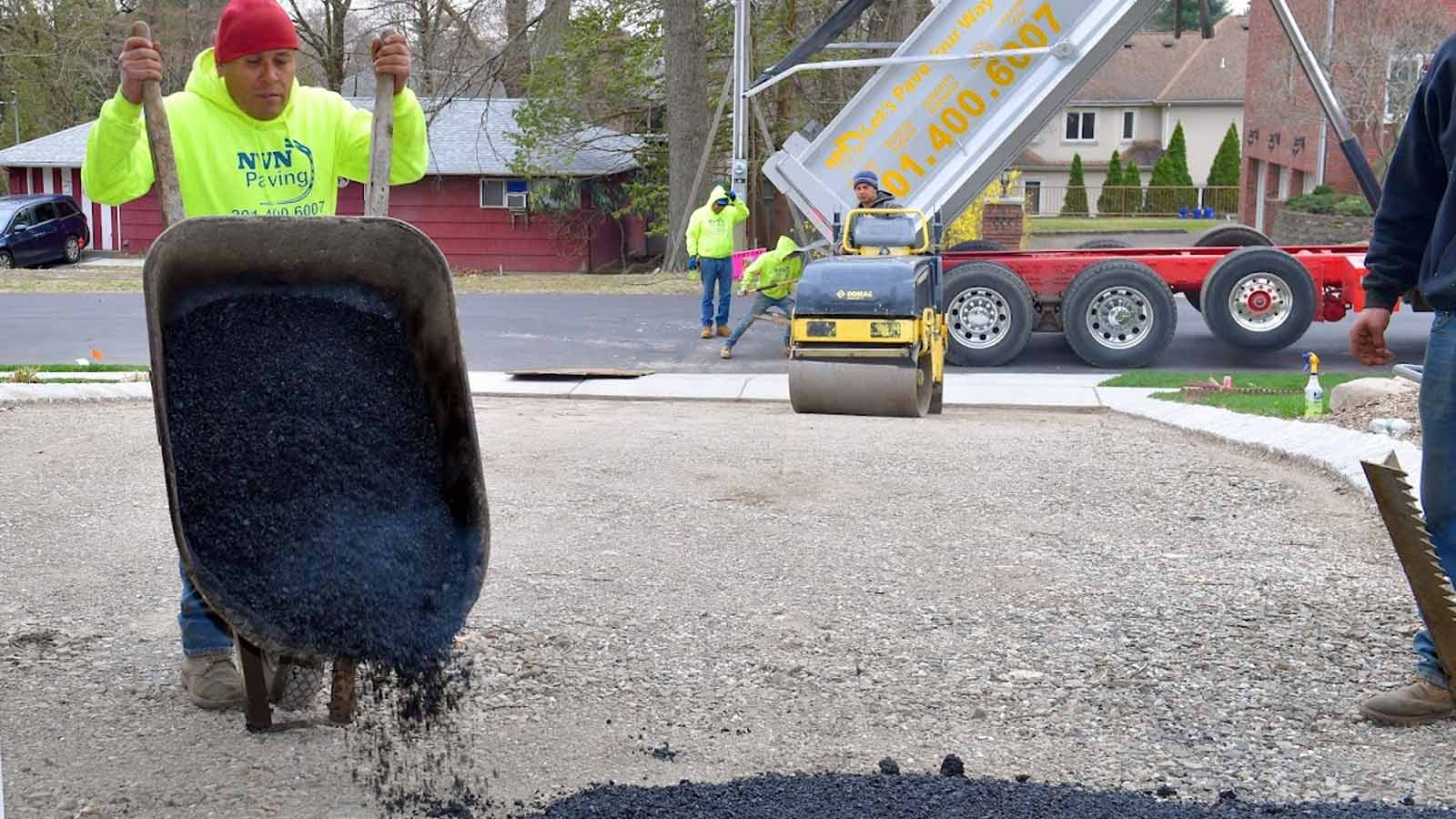Asphalt is standard on roads, driveways, parking lots, and highways. If you’re in New Jersey and need asphalt paving services, you’re in luck. At NVN Paving, we specialize in repairing and installing asphalt driveways. We offer various services, including asphalt driveway installation, repair, resurfacing, and seal coating.
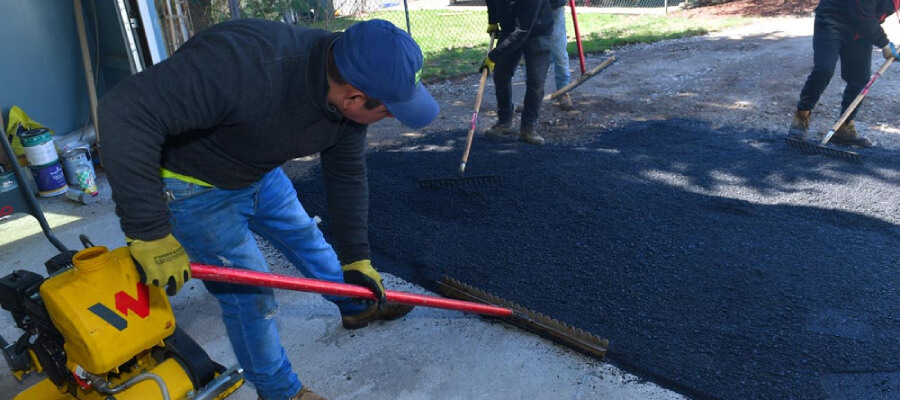
Asphalt driveway installation service
Our asphalt driveway installation service can help upscale your property’s appearance and increase its value. We can use recycled asphalt millings or chip seal with an aggregate to give your driveway a red finish. Additionally, we offer asphalt repair services that cater to potholes, cracks, and other damages. We also specialize in asphalt resurfacing, which can extend the lifespan of your driveway by up to 12 years.
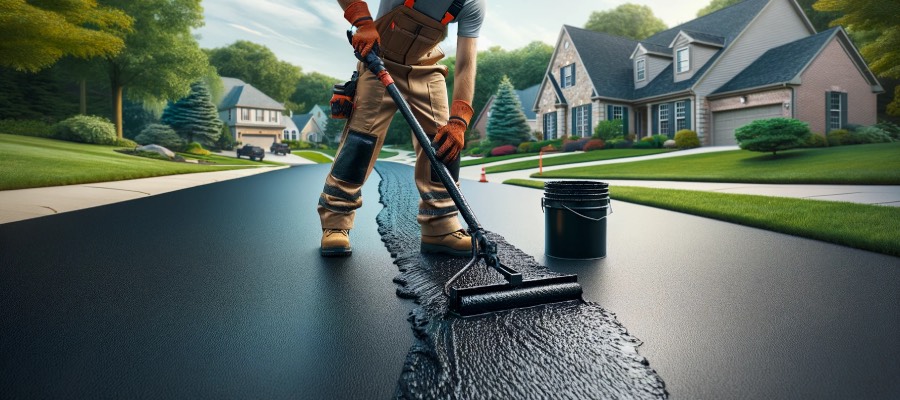
Asphalt seal coating services
Our team can provide asphalt seal coating services that help protect your driveway from water, UV rays, and chemicals. This process can also give your driveway a slip-resistant surface and a crispy black finish. We can help you decide on your project’s best asphalt paving type.
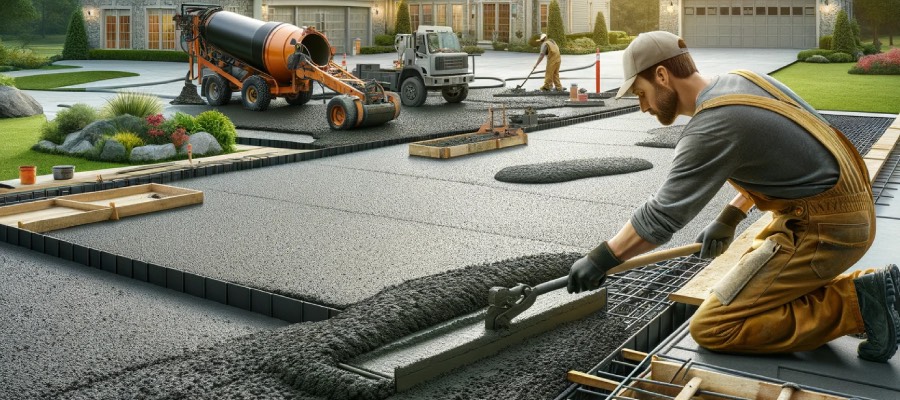
Asphalt deteriorates faster than concrete
Asphalt and concrete are composite materials that make excellent driveways. Asphalt driveways have a lower upfront cost than concrete and require less complicated repairs. However, asphalt deteriorates faster than concrete and requires constant maintenance and sealing. Concrete driveways, on the other hand, are more expensive to install and repair, but they require less maintenance and can last up to 50 years.
NVN Paving is dedicated to providing you with the best possible result. Our professionals use modern equipment and the best asphalt pavement techniques to deliver quality services. We’re here to help with any asphalt paving service you may require in the New Jersey area.
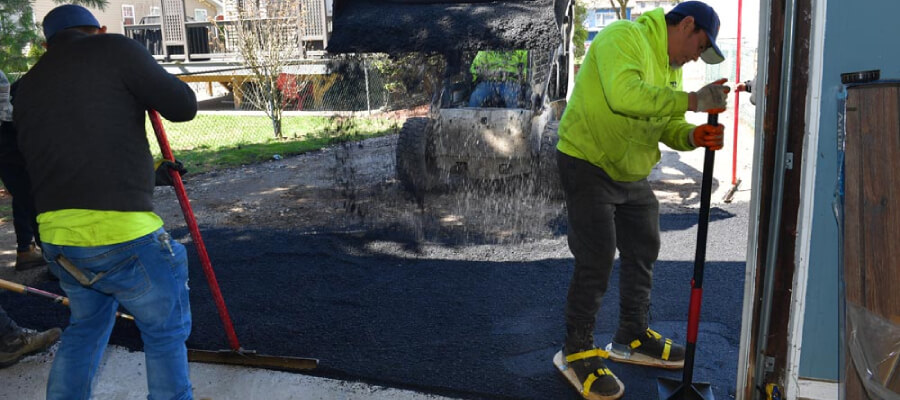
Installing or repairing a driveway
Asphalt paving is an excellent choice for installing or repairing a driveway, parking lot, or roadway. Its smooth surface provides a sleek appearance and is durable enough to withstand heavy traffic and weather conditions.
One of the most significant advantages of asphalt paving is its cost-effectiveness. It is significantly cheaper than concrete and can be installed quickly, reducing the amount of disruption to your property.
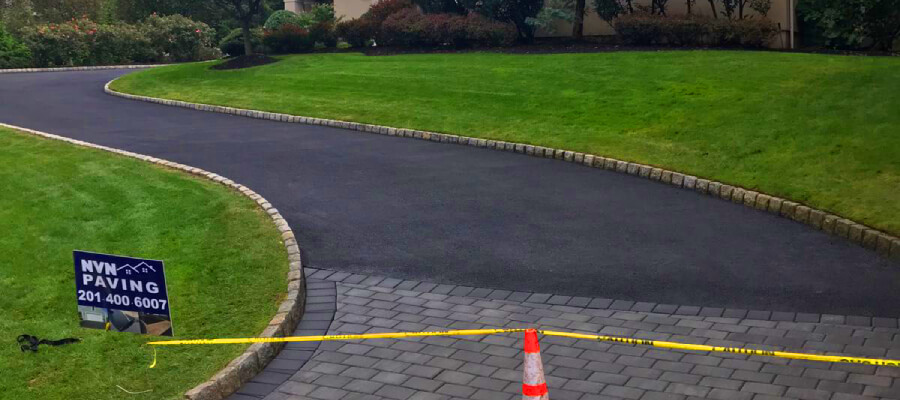
Budget-friendly paving services in NJ
Not only is an asphalt paving budget-friendly, but it is also eco-friendly. Asphalt is a recyclable material, which means that old asphalt can be repurposed into new pavement, reducing the amount of waste produced.
If you’re looking for a unique touch to your pavement, you can even choose to have colored asphalt installed. This option allows various color choices, from red and green to blue and yellow.
Another advantage of asphalt paving is its ease of maintenance. Regular sealing can help prevent cracks and potholes, keeping your pavement in excellent condition for years.
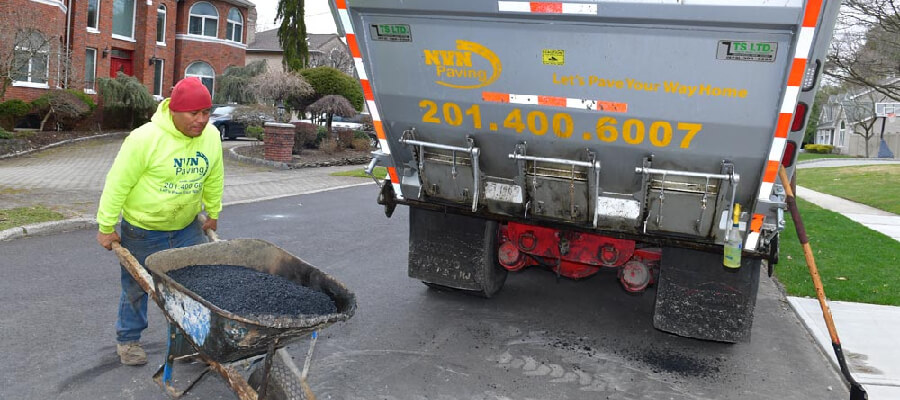
Get a free quote today
When it comes to installation, choosing a reputable and experienced paving company is crucial. They can ensure the foundation is adequately prepared, the asphalt is correctly laid and compacted, and the finished product is smooth and level.
So consider asphalt paving if you’re looking for a cost-effective, eco-friendly, easy-to-maintain option. With the right company, you can have a beautifully paved driveway or parking lot that lasts years.
